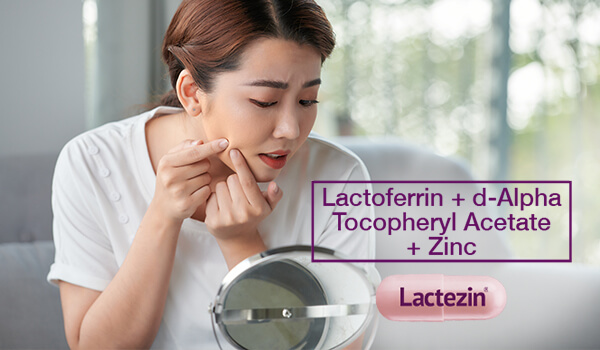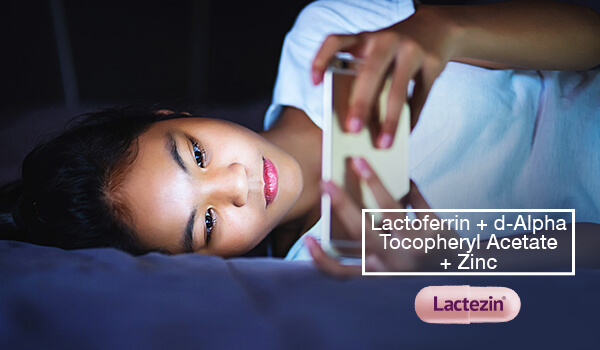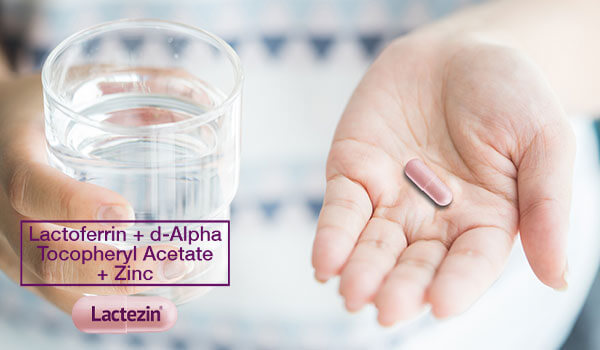Stress Acne: Why It Happens and What You Can Do About It

Stress is a normal part of every day, and the human body is designed to experience it from time to time. But too much stress can take a toll on your overall health. On your skin, this may show up as Stress Acne. Read on to learn more about this type of acne, its causes and suggestions on how to prevent and treat the condition.
Understanding Stress Acne: How Stress Triggers Acne Flare-ups
Pimples after a tough day at work? Must be the stress. The idea of stress causing acne is nothing new. In fact, you may have heard it from friends and family during or after a stressful time in your life. And the fact is that stress acne is real. Here are what you need to know about the condition:
What Causes Stress Acne?
Yes, it’s stress that causes stress acne. But it’s important to understand that stress does not directly trigger the occurrence of pimples, blackheads, whiteheads and other types of acne.
When the body feels stressed, it sets off a series of internal reactions to help itself cope with what’s causing the stress. The body releases hormones that pumps up the heart, making your breathing quicker and readying your muscles for anything physical. One of the hormones released while the body gets into defense mode is cortisol, which unfortunately sends the skin’s sebaceous glands into overdrive causing an overproduction of sebum. This overproduction of oil very likely leads to clogged pores which are the principal cause of acne problems.
Studies have found that wounds, including acne, take much longer to heal. Especially if you have acne-prone skin, stress can worsen acne. Delaying its healing time, pimples stay longer and may increase in terms of severity.
What Does Stress Acne Look Like?
As previously mentioned, stress acne follows when the sebaceous glands produce excess oil for the skin. This is why stress acne will usually appear in the oiliest areas of your face, such as the T-zone. This is usually accompanied by dilated pores, a shiny, grainy complexion as well as itchiness and redness.
Although also set by hormones, stress acne is not the same as hormonal acne. How to tell the difference? The main way to determine is to identify what event triggered the breakout: is it after a period of stress or around the same time as your monthly menstrual cycle?
How to Treat Acne Caused by Stress
As with other types of acne, there are ways to manage and treat stress acne. Consider the following suggestions:
Adapt a Routine Skincare for Stress Acne
When it comes to keeping the skin healthy and free of acne, a proper skincare routine is always a good place to start. Make sure to check if your current routine and products match your skin type’s needs and, for acne-prone skin, don’t forget to include the following:
- There tends to be less acne problems when fluids in our skin are kept in balance. For washing off the day’s dirt, use a pH-balanced cleanser. This skincare product effectively cleans without stripping too much moisture from the skin.
- Choose alcohol-free for your toner. We want to avoid skin-drying terms that may cause the sebaceous glands to overcompensate with oil production.
- A gentle serum before moisturizing always helps nourish the skin to its best.
- Non-comedogenic moisturizers are the way to go come moisturizing time. These are formulations that hydrate the skin without clogging pores.
Extra Steps to Dealing with Stress Acne
Topical products can be of great help against stress acne. Benzoyl peroxide and salicylic acid are two of the most well-known acne-fighting ingredients, and both are available over the counter. They may be used as spot treatment over individual lesions or over a general affected area. Just make sure to pick one that doesn’t leave your skin irritated or too dry.
Find Ways to Manage Stress
Along with the above-mentioned skincare habits, learning how to better manage stress should be very beneficial for your skin. Here are simple ways to reduce stress:
- When overwhelmed, take mindful pauses.
- Try breathing exercises.
- Make sure to regularly get a good night’s sleep.
- Maintain a healthy diet. Low glycemic foods (whole grains, legumes, and fresh or unprocessed fruits and vegetables) helps improve and prevent acne.
- Exercise regularly. Keep it fun by trying out different workouts.
- Regularly connect with friends and family. Honest conversations are a great way to bond, and to unload some steam.
Managing Stress Acne with Lactoferrin + d-Alpha Tocopheryl Acetate + Zinc (Lactezin)
Oral medication is also one of the best ways to deal with stress acne. Lactoferrin + d-Alpha Tocopheryl Acetate + Zinc (Lactezin) is an over-the-counter, anti-acne drug that combines the skin-nourishing powers of vitamin E with the antibacterial properties of lactoferrin and the oil-regulating effects of zinc. With regular use, Lactoferrin + d-Alpha Tocopheryl Acetate + Zinc (Lactezin) helps treat and prevent pimples in as early as 2 weeks.
Read more about vitamin E and the right skincare ingredients to look for in your products. Lactoferrin + d-Alpha Tocopheryl Acetate + Zinc (Lactezin) is available in all leading drugstores nationwide. You may also purchase online through Lazada and Shopee.
SOURCES:
https://www.byrdie.com/what-is-stress-acne-4775239
https://www.healthline.com/health/stress-acne
https://www.health.com/condition/acne/stress-acne


